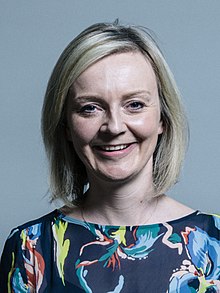By Lucy Caulkett-
UK Ministers are set to target India’s middle classes and young people in a trade deal with a focus on whisky, British-made cars and services.
International Trade Secretary Liz Truss hopes to start talks over a free trade agreement with India in the autumn.
She has launched a 14-week consultation to gather views from the public and businesses before talks begin.
The Government is pursuing a deal to allow trading with India’s £2 trillion economy and 1.4 billion customers.
Earlier in May, the British Home Office announced a scheme for 18 to 30-year-old professionals, which would allow “the brightest and best” to come to the UK based on “skills and talent”.
The Young Professionals Scheme will be open to a maximum of 3,000 people from each of India and the UK per year, although the two governments can decide to raise or lower this limit.
It added that the two countries would also “crack down” on illegal migration.
The new scheme comes as the UK is pushing for a post-Brexit free-trade deal with India.
India is one of the world’s fastest-growing economies and we share much in common, so we’re natural partners.
The deal would include removing tariffs of up to 150% on whisky and 125% on British-made cars, as well as a focus on industries such as science, technology and services.
Ms Truss said: “We’re firing the starting gun on a free trade deal with India – the world’s largest democracy, fifth-biggest economy, a nation of 1.4 billion people, and a huge market for British goods like whisky, cars and services.
“We want an agreement that pushes new frontiers in industries of the future and helps us build a greener, more innovative and more services-led economy that will deliver higher-paying jobs across the country.”
International trade minister Ranil Jayawardena added: “India is one of the world’s fastest-growing economies and we share much in common, so we’re natural partners.
“A trade deal will break down barriers, making it easier for British businesses to sell their wares in India – and secure more investment, better jobs, higher wages, more choice and lower prices here at home.”
The public consultation will run until August 31 and is a necessary step before talks can officially begin.




